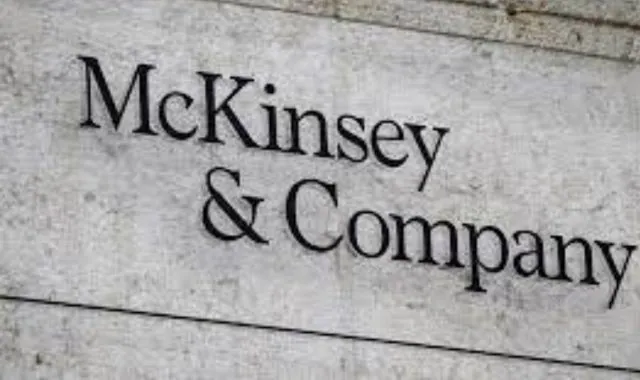Physical Address
304 North Cardinal St.
Dorchester Center, MA 02124
Physical Address
304 North Cardinal St.
Dorchester Center, MA 02124

McKinsey & Company is a name synonymous with management consulting. Founded in 1926, it has grown into a global giant, advising corporations, governments, and organizations on everything from strategy and operations to digital transformation. But with such immense influence comes inevitable scrutiny. So, the question arises: is McKinsey & Company credible?
McKinsey’s story begins with James O. McKinsey, a brilliant University of Chicago professor who believed in applying scientific principles to business problems. His vision laid the foundation for the firm’s core values – fact-based analysis, client focus, and a deep understanding of specific industries. These principles continue to guide McKinsey’s approach to this day.
McKinsey consultants, rigorously trained and known as “problem solvers extraordinaires,” pride themselves on a structured approach. They leverage data analytics, in-depth research, and a global network of expertise to craft customized solutions for each client.
McKinsey boasts an impressive track record. From Fortune 500 companies to government agencies, they’ve helped organizations streamline operations, boost innovation, and navigate complex challenges.
Imagine a multinational struggling to keep up with the digital age. McKinsey might help them redesign their supply chain for greater efficiency. Is a government grappling with healthcare reform? McKinsey could offer data-driven strategies to optimize resource allocation.
Think of McKinsey as a business doctor. They diagnose inefficiencies, prescribe solutions, and guide implementation, often leading to significant cost savings and improved performance.
They don’t just fix problems; they help companies stay ahead of the curve. McKinsey consultants work with clients to identify emerging trends, foster a culture of innovation, and develop cutting-edge products and services.
From restructuring a troubled industry to formulating a national environmental policy, McKinsey tackles complex issues with a blend of expertise and fresh perspectives.
Despite its successes, McKinsey hasn’t been without its share of criticism. Here’s a look at some of the controversies that have raised questions about their credibility.
In recent years, McKinsey faced accusations of involvement in a South African corruption scandal. The firm has since acknowledged its failings and agreed to return fees associated with the tainted contracts. This incident highlighted the importance of ethical conduct for a company with such immense influence.
McKinsey prides itself on client confidentiality. While this protects sensitive information, it can also create a “black box” effect. Critics argue that a lack of public scrutiny makes it difficult to assess the true impact of their work.
Without transparency, it’s hard to know if McKinsey’s solutions are truly effective in the long run, or simply designed to generate short-term gains for their clients.
McKinsey’s services come at a premium, making them inaccessible to smaller businesses and startups. This raises concerns about fairness and equity in the consulting landscape.
So, how do we weigh these criticisms against McKinsey’s proven track record? Here’s a closer look at both sides of the coin.
Let’s not forget the positive impact McKinsey has had on countless organizations. Their success stories and industry recognition speak volumes. Top business schools actively recruit from McKinsey, further solidifying their reputation for attracting and developing top talent.
McKinsey isn’t just about solving client problems; they’re also committed to generating valuable insights for the broader business community. Through the McKinsey Global Institute, they conduct in-depth research on critical global issues, making their findings publicly available.
Think of it as a think tank within a consulting firm. The McKinsey Global Institute publishes reports on topics like urbanization, technological disruption, and global economic trends, offering valuable data and analysis for businesses and policymakers alike.
In the wake of past controversies, McKinsey has taken steps to address concerns about transparency. They’ve increased public access to their research and are actively working to improve communication about their work and impact.
A Measured Approach: Considering Context and Specific Needs
There’s no simple yes or no answer. McKinsey’s credibility depends on the specific context and your needs.
Here are some things to consider:
Ultimately, due diligence is key. Research McKinsey’s work in your industry, and consider their approach to align with your company culture and values.
1. What are some alternatives to McKinsey & Company?
Several reputable consulting firms offer similar services, such as Boston Consulting Group (BCG), Bain & Company, and Roland Berger. Consider researching their specific areas of expertise and fees to find the best fit for your needs.
2. Can I work for McKinsey & Company if I don’t have a business degree?
While a business degree is common, McKinsey values diverse backgrounds and exceptional problem-solving skills. If you have a strong academic record and relevant experience, you could be a strong candidate.
3. What are some of the criticisms of McKinsey’s consulting style?
Some critics argue their approach can be overly formulaic and fail to account for the unique nuances of each client’s situation. Additionally, their focus on short-term results might not always align with long-term goals.
4. How does McKinsey & Company ensure the quality of its consultants?
The firm has a rigorous recruitment process that attracts top talent from around the world. They also provide extensive training and development programs to ensure their consultants stay at the forefront of industry knowledge.
5. What are some of the benefits of working with McKinsey & Company?
Beyond the prestige and brand recognition, McKinsey offers exceptional career development opportunities and the chance to work on complex and impactful projects across diverse industries.